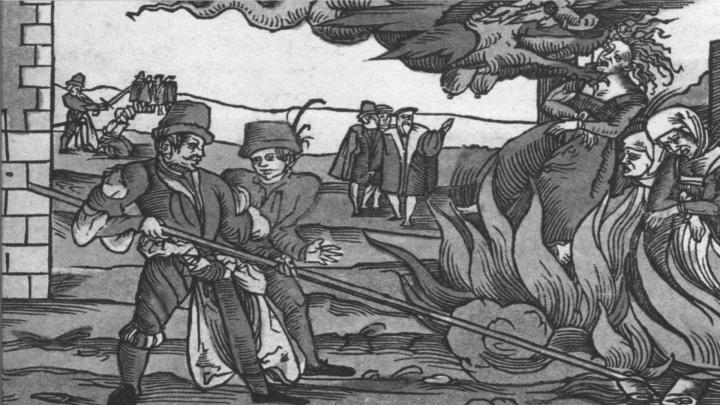"The car driver who would stop near the Sesia river viaduct on the highway between Turin and Milan today, looking out to the left and south, could still see the fires of Zardino rising in the middle of the woods, if Zardino existed: but it does not. In the spring of 1600, however, Zardino existed, and was completely unaware that it was to disappear within a few years: a small hamlet like so many other small villages in the lowlands, with its landscape of forests and vineyards toward the marshes and riverbanks; of meadows and barrens toward Briandata, of fields of corn, wheat and paddy fields toward Novara."
Sebastiano Vassalli - The chimera.
The true and sad story of Antonia Spagnolini, unfortunately called the witch of Zardino, was told in Sebastiano Vassalli's beautiful novel "La chimera".
Antonia was abandoned in 1590 in front of a convent in Novara, where she spent her childhood until the age of 10, at which time she was adopted by a couple of peasants from Zardino, a now vanished village that stood on the banks of the Sesia River. Her adoptive parents raised her as their own daughter, sparing her the drudgery of labour in the fields. This detail, together with the fact that Antonia transforms herself day by day into an uncommonly beautiful girl, causes the envy of other women.
In addition to her beauty, Antonia was also a proud and independent girl regarding religious matters. What's more, by rejecting various marriage proposals, including one from a fallen nobleman, she becomes increasingly despised by the village peasant women.
As if that were not enough, at age 19 she fell in love with Gasparo, a "walker»; that is, a vagabond who earned a living by directing teams of "risaroli," miserable labourers on rice plantations.
The two began seeing each other at night at the "albera hump," which in the superstitious fantasies of the villagers was considered a place of witchcraft meetings, of appointments with the devil. These facts were enough to have her reported to the religious authority.
Locked up in prison, Antonia would staunchly defend herself during the trial, but would still be sentenced to be burned at the stake in 1610.

